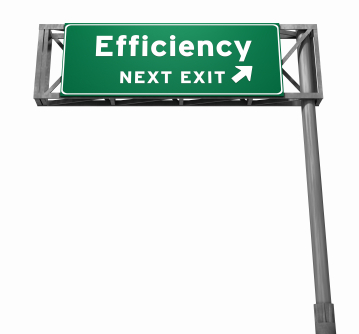Our blog post about “Lean Conversations” connected us to Dan Markovitz of TimeBack Management and provoked a great dialogue about increasing our own productivity and that of white collar or “knowledge workers” in general. Dan’s slogan “working at the intersection of personal productivity and lean manufacturing” really captures his offering. For those of you interested in looking at office productivity through the eyes of “lean,” we urge you to check out Dan’s blog posts.
From 2130′s perspective the opportunity starts with recognizing that there actually is an opportunity for huge breakthroughs in productivity for all of us. Unless you start your thinking from this possibility, you will never put your energy and intention into capturing the available gains for your associates and yourself. The “urgent” will continue to distract you and draw your focus. As Markowitz says, “you’ll never get off the fire truck!”
The second step is to create a vision of what your work practices would look like if it were the “golden era.” In other words, if your work life were all working perfectly, what would you be getting done and what would happen to all the rest of it? This means you have to identify a clear picture of what is important and valuable and what you are committed to, (what we would call your “Yonder Star”). Easily said, and yet we find many clients who struggle mightily with this seemingly simple notion. The critical point is everything builds from this starting point so if you aren’t willing to take this on, stop reading.
The next step is to track your practices. Find those things that are necessary, predictable, and/or repetitive, amid all the unique activities in your week. Pull them out and put them on your calendar at times that are convenient, with plenty of lead-time to get them done.
Now compare your vision to all the stuff you have been doing and see if much of it really forwards you on your path to your vision and highest priorities. Now be rigorous and drop as much as possible of what doesn’t fit. This may mean delegating or sub-contracting or it may mean you just stop doing it. Notice who you are afraid of offending or don’t want to disappoint. Is there a way you can re-negotiate? Can you just stop? Why not? What is it costing you to keep doing things that are not leading to your vision? Are you willing to keep paying that price? How much time have you got left?
 Now ask “what’s missing today from my vision today that would be the most valuable thing I could put my attention on?” “What, if I/we got to work on it would give us the greatest leverage in fulfilling the vision?” By leverage we mean getting the greatest result for the least effort and investment of resources. Pick one, and no more than three, activities and build time into your calendar for them. Share your new focus with others so that they ask you how you are doing. They may even look to see how they can support you! That’s real accountability – holding yourself accountable in a public way through your declarations.
Now ask “what’s missing today from my vision today that would be the most valuable thing I could put my attention on?” “What, if I/we got to work on it would give us the greatest leverage in fulfilling the vision?” By leverage we mean getting the greatest result for the least effort and investment of resources. Pick one, and no more than three, activities and build time into your calendar for them. Share your new focus with others so that they ask you how you are doing. They may even look to see how they can support you! That’s real accountability – holding yourself accountable in a public way through your declarations.
Start practicing your new design. It will take practice to break your old habits and build sustainable new ones. It does take the initial effort of the analysis above and building a new practice, but the outcomes will be worth it.
Let us know how you are doing!

